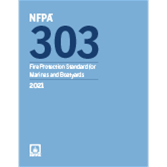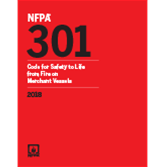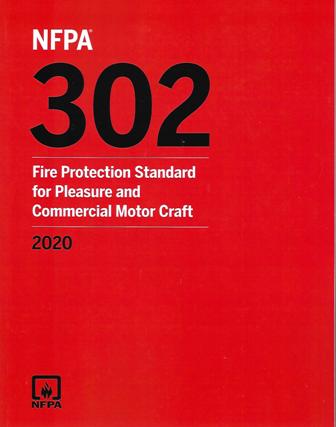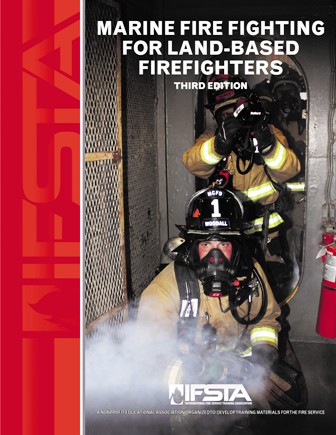Reduce hazards around marinas and boatyards by complying with NFPA 303 requirements.
Injuries from fire and electrical shock and environmental damage resulting from spilled hazardous materials are a significant concern in and around marinas and related facilities. NFPA 303, Fire Protection Standard for Marinas and Boatyards, helps protect people and property by offering strategies and provisions for establishing an acceptable level of safety.
Referenced in NFPA 1, Fire Code, this vital standard provides criteria for the construction and operation of marinas, boatyards, yacht clubs, boat condominiums, and docking facilities, including associated piers, docks, and floats. Content also covers support facilities and structures used in building, repairing, fueling, and storing vessels if at risk in the event of a fire.
From management and operational hazards to fire protection, electrical equipment and wiring, and berthing and storage, you get access to broad-based knowledge for helping to safeguard these structures and facilities.
The 2021 edition is essential for anyone involved with or responsible for safety in marinas and boatyards.
NFPA 303 has been updated to account for the overall lack of awareness amongst boat owners that dangerous ground-fault leakages can occur on their vessels. The latest edition further addresses electrical hazards with new requirements that apply retroactively to all marinas within two years of adoption of this edition.
The standard now states that vessels are to be tested for the presence of AC ground faults at the time of the initial connection to a marina electrical system. This rule applies to vessels that have not been constructed in accordance with the shore-power ground-fault requirements of Article 555 of NFPA 70®, National Electrical Code®. Vessels are not to be permitted to connect to the marina system if they display ground-fault leakage exceeding 30 mA.
Additional changes include:
- Amended provision for receptacle configurations of less than 30 amperes and no more than 50 amperes to require these devices to be of a locking and grounding type that is listed and labeled
- New language specifying the minimum width of fire department access roads
- Revised fire protection requirements for in-out dry storage and rack storage
- Added requirements that standpipe systems be designed and installed in accordance with NFPA 14 and portable fire extinguishers be provided in accordance with NFPA 10
- Updated requirement for automatic fire-extinguishing systems for covered piers in excess of 5000 ft2
- New requirement that operators of marinas and boatyards keep a record of employee training related to fire drills
- Addition that guidance information be provided for signage at berths and slips to facilitate reporting of fires or other emergencies
Get up to speed with marina safety by purchasing NFPA 303, 2021 edition.





